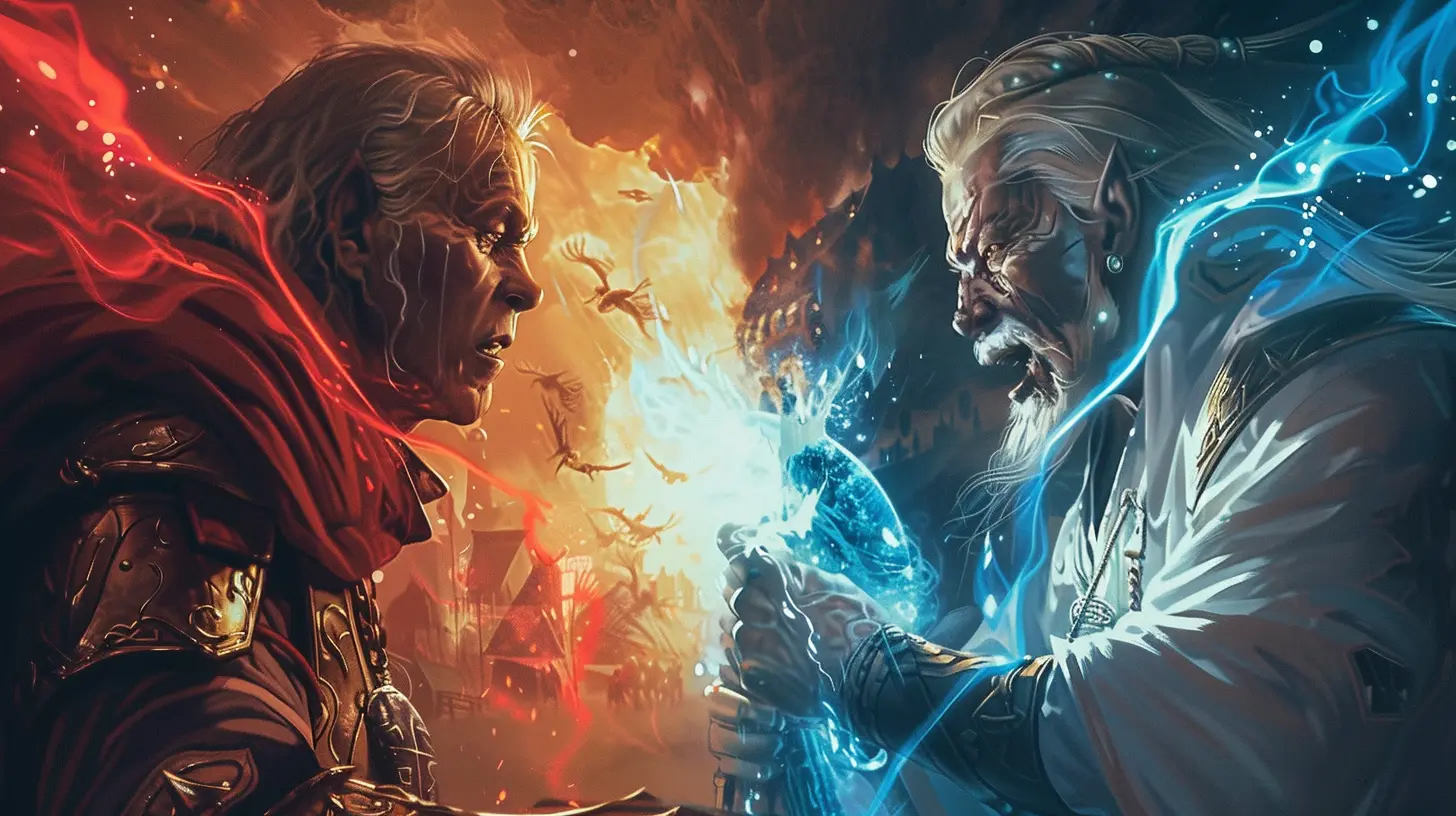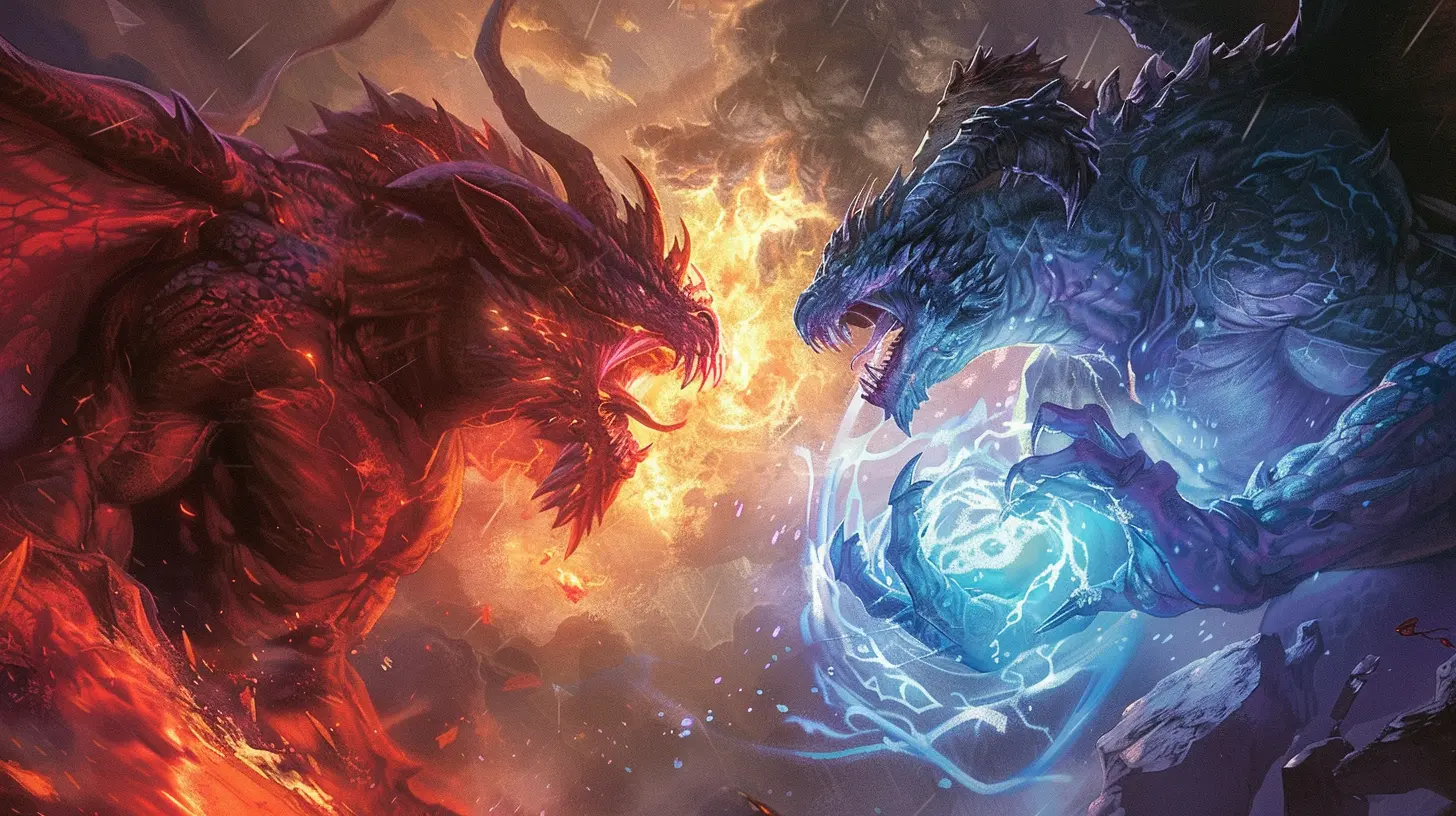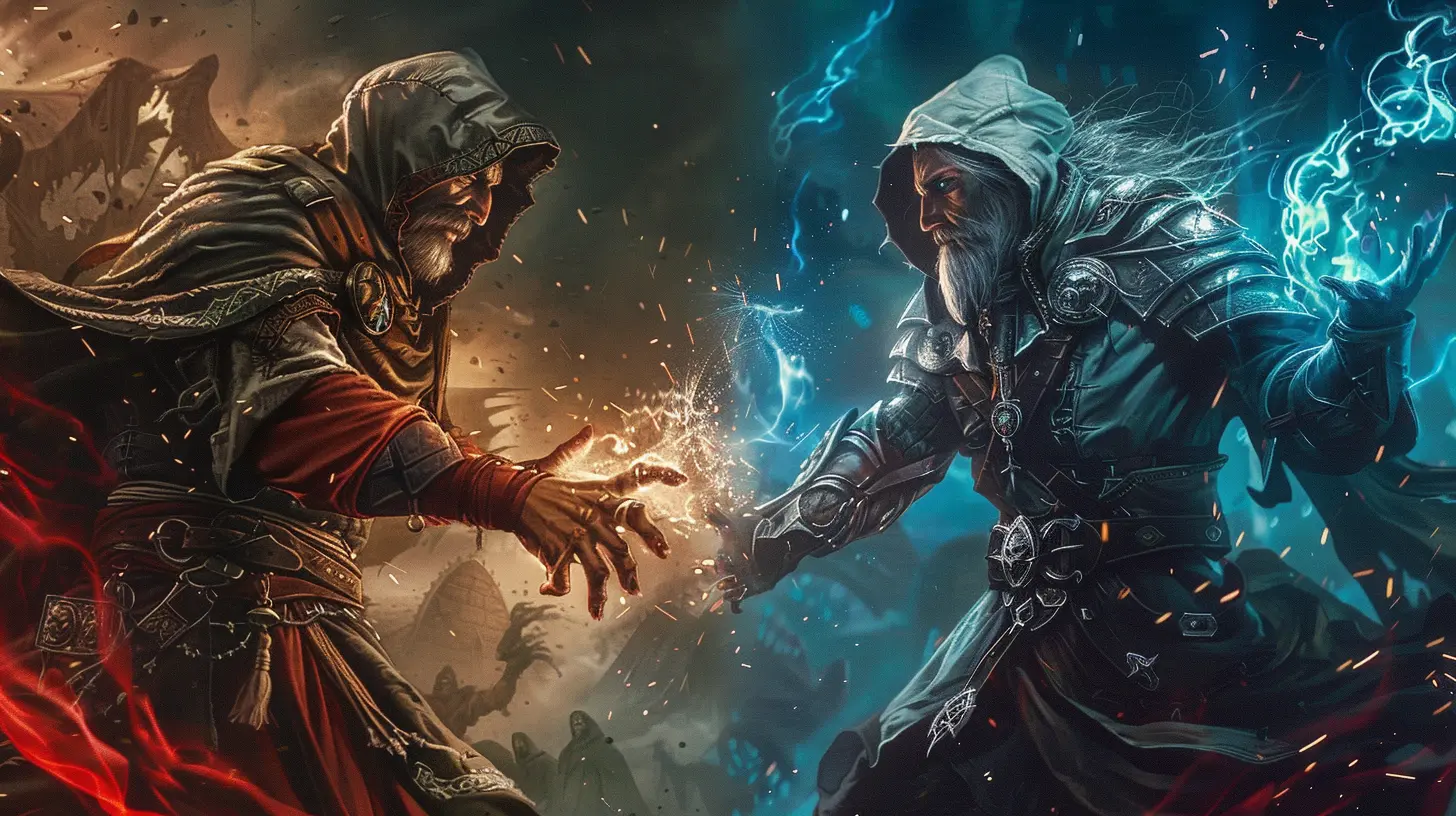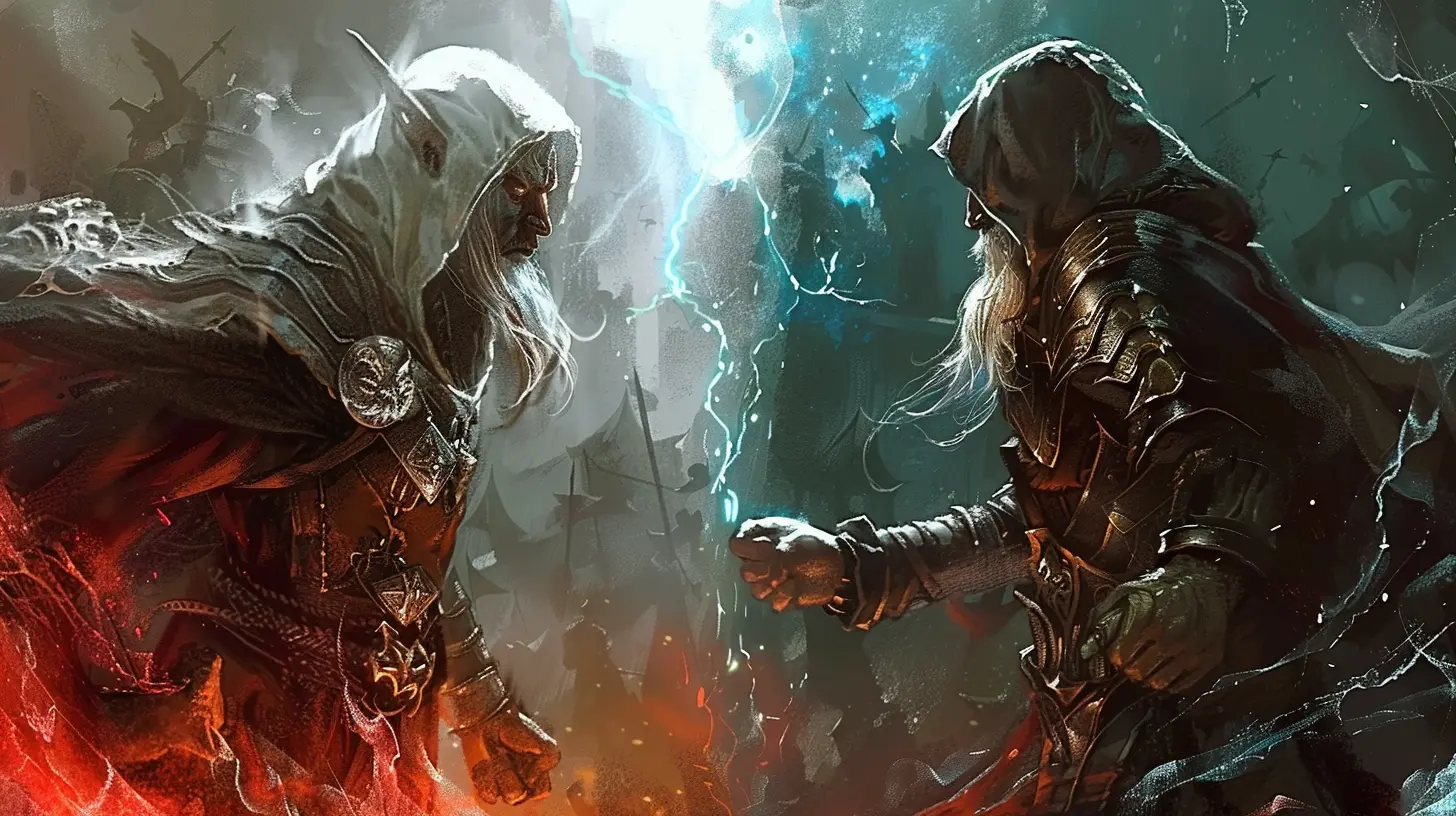Random Encounters vs Scripted Battles: Which Works Best for RPGs?
9 July 2025
In the expansive world of RPGs (role-playing games), one of the key debates among developers and players is how battles should work. Should you stumble upon enemies randomly as you roam the world, or should combat be carefully scripted and tied to the story? This might seem like a small design choice, but it dramatically shapes how we experience the game. So let’s dive deep into the world of random encounters vs scripted battles and figure out which works best for RPGs.

What Are Random Encounters?
Random encounters are those surprise battles that pop up while you're walking through a dungeon, forest, or cave. You’re just minding your business, maybe even low on potions, and BAM! A wild slime appears!These battles aren’t planned events. You don’t see the enemies on the map. Instead, they’re triggered by the game’s internal mechanics—usually every X number of steps or based on probability.
Classic Examples of Random Encounters
- Final Fantasy series (early titles): Arguably the poster child for random battles. You never knew when enemies would appear, and it made exploration both thrilling and a little nerve-wracking.- Pokémon (tall grass encounters): You remember the panic of trying to get through a patch of grass with low HP, right?

What Are Scripted Battles?
Scripted battles, on the other hand, are entirely planned by the developers. These fights are often tied to the game’s narrative or world-building. You see the enemies on the screen, and you usually have the option to approach or avoid them.Examples of Scripted Battles
- Undertale: Almost every encounter is unique and builds on the story or the characters.- The Witcher 3: Enemy encounters are mostly visible, and you often have a choice in whether to fight or flee.
- Final Fantasy VII Remake: A modern twist where encounters are fully integrated into mission design.
So, now that we’ve got the basics down, let's get into the nitty-gritty. Which one is better? Spoiler alert: it depends on what you're looking for in your RPG experience.
Pros and Cons of Random Encounters
Let’s start by breaking down why you might love or hate random battles.✅ The Pros
1. Sense of Uncertainty and Tension
Random battles keep you on your toes. You never know what’s coming, which can build tension and excitement—especially in darker, more dangerous environments. It’s like knowing something spooky could jump out at any moment. That unpredictability gives a game a bit of an edge.2. Grinding Becomes Natural
Need to level up? Random encounters make grinding feel more organic. You’re already exploring, and XP just comes with the territory. It's like picking up seashells while walking on the beach—rewarding and effortless.3. Replay Value
Because random battles aren’t tied to the story, each playthrough might feel slightly different. The unpredictability can change how you prepare, move, and play.❌ The Cons
1. They Can Get Annoying Fast
Let’s be real—random encounters can interrupt your rhythm. Just want to solve a puzzle or navigate a maze? Too bad, here’s another bat.2. Lack of Context
Why are you fighting this random goblin army in this lush meadow again? Random enemies often feel detached from the story or environment, making battles feel more like chores than plot devices.3. Poor Pacing
When random battles are too frequent, they can kill the game’s pacing. Instead of moving the story forward, you get stuck in an endless loop of fight-animation-menu-victory screen.
Pros and Cons of Scripted Battles
What about scripted bouts, those epic, well-designed fights that feel like part of a movie?✅ The Pros
1. Stronger Narrative Integration
Scripted battles usually tie directly into the story. Think boss fights that are emotional climaxes—like Sephiroth in FF7 or your rival in Pokémon. They fit, they matter, and they move the story.2. Adds Strategy and Planning
Since you see your enemies ahead of time, you can prepare. Want to buff your party or switch equipment? Go for it. This makes the game feel more tactical, less lottery.3. Better Pacing and Flow
With scripted encounters, developers control the tempo. They can make sure players face battles at the right moments for story impact or difficulty curves.❌ The Cons
1. Limited Grinding Opportunities
If there are only so many scripted enemies in the world, you might run out of chances to level up. This can lead to some frustrating roadblocks, especially in harder games.2. Can Feel Too Predictable
Once you realize the enemies are only where the developers placed them, some of the tension is gone. The world might feel too “safe” or even staged.3. Less Surprise
Scripted battles might look cinematic, but they sometimes lack the spontaneity that makes gameplay feel fresh and dynamic.How Game Design Affects the Choice
The decision between random and scripted usually ties into the game’s design philosophy. Open-world RPGs with exploration-heavy mechanics might benefit more from scripted encounters. Meanwhile, dungeon crawlers or retro RPGs often lean on random battles to fill out the gameplay loop.Narrative-Driven vs Mechanics-Driven Games
- Narrative-driven games (like The Last of Us or Witcher 3) usually prefer scripted battles—they want the fight to mean something.- Mechanics-driven games (like classic Dragon Quest) often thrive on tight gameplay loops, where random battles drive resource management and party-building.
The Hybrid Approach: Why Not Both?
Some games cleverly blend both systems to get the best of both worlds.RPGs That Mix Systems Effectively
- Chrono Trigger: You see enemies on the field, so no randomness. But sometimes they still "jump out" at you unexpectedly—adding that random flavor in a scripted design.- Bravely Default: Features random battles, but lets you adjust encounter rates. Yep, you can actually set how often you want to be interrupted. Genius!
- Octopath Traveler: Uses traditional random encounters, but levels design and narrative to make them feel more meaningful.
By mixing styles, these games offer tension, player control, and narrative cohesion all at once. It's like having your cake and eating it too—without choking on it mid-dungeon.
Player Psychology: What Do Gamers Actually Prefer?
Let’s talk player preference. Some folks live for the grind. They want to strengthen their party, collect loot, and master every system. For them, random encounters are part of the fun.Others play RPGs for the story, the characters, the exploration. They don’t want meaningless fights clogging their path. Every battle should count.
Interestingly, many modern gamers lean toward visible encounters. Why? Control. We like knowing what we’re getting into. But nostalgia for old-school mechanics also keeps random battles alive in niche titles and indie throwbacks.
What Works Best for RPGs?
Ah, the big question.Here’s the honest answer—it depends. But let's break it down:
Random Encounters Work Best When:
- The RPG is dungeon-focused or turn-based.- Grinding and leveling are core parts of the gameplay loop.
- The game world is large and procedural.
- The tone leans toward survival or tension (e.g., old-school JRPGs).
Scripted Battles Work Best When:
- Story and character development are central.- Worldbuilding is detailed and immersive.
- Strategy and player choice are emphasized.
- The game avoids repetition or grind-heavy mechanics.
Final Thoughts
At the end of the day, both random encounters and scripted battles have a place in RPGs—but they’re tools, not templates. It’s all about how they’re used. Think of them like salt and sugar: the right amount in the right dish makes all the difference.Personally? I love it when a game gives me a bit of both. Let me wander into fights sometimes, but also give me those big, emotional, scripted set-pieces that make me care about why I’m swinging my sword.
No matter your preference, the real magic happens when developers think about player experience, and not just old-school formulas.
So, what do you think? Are you team chaos (random) or team control (scripted)? Or do you want that hybrid spice that keeps every battle exciting?
all images in this post were generated using AI tools
Category:
Role Playing GamesAuthor:

Jack McKinstry
Discussion
rate this article
2 comments
Rocco Dillon
Great article! I believe both random encounters and scripted battles have their unique strengths. Random encounters add unpredictability and excitement, while scripted battles provide depth and narrative. A balanced approach can enhance the overall RPG experience.
November 18, 2025 at 5:38 AM

Jack McKinstry
Thank you for your insightful comment! I completely agree that both random encounters and scripted battles bring unique elements to RPGs, and balancing them can significantly enrich the gameplay experience.
Zorion Ruiz
Surprise fosters engagement; predictability comforts.
July 21, 2025 at 3:11 AM

Jack McKinstry
Absolutely! Balancing surprise and predictability can enhance both player engagement and comfort, making for a richer RPG experience.


